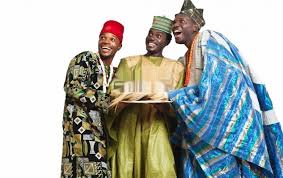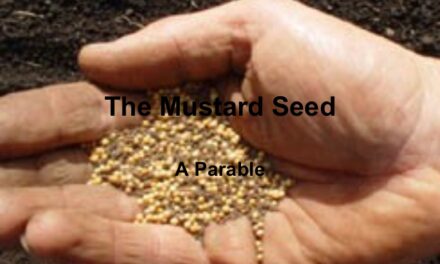It is easier for a camel to go through the eye of a needle, than for a rich man to enter into the kingdom of God – Mk 10:25
The Gospel tells us that Jesus came ‘preaching the kingdom of God.’ The kingdom represents a reversal for us. The way to inherit the kingdom of God is exclusively the way of the needle’s eye in contrast to the broad popular way. In Mark 10 and other two Gospel accounts, Jesus used humorous comparison of a ‘camel to go through the eye of a needle’ (Mk 10:23-27, Matt 19:23-26, Lk 18:24-27). The context of Jesus’ usage is about a rich young man who approached Jesus and asked what it took to have eternal life (Mk 10:17). In response to Jesus, the man answered that he had kept all the Ten Commandments. The man went away sad when Jesus told him to sell all he owned, give the proceeds to the poor, and follow him. The camel phrase and the reason it is so hard for any of us to pass through the needle’s eye is that, like the rich young man, ‘we have so much baggage which we must exclusively discard if we are to get through. This baggage amount to idolatry because only a belief in the adequacy of God will enable us to inherit eternal life. Beyond the baggage and cultural proliferation of choice, we need God’s framework and faith in His living Word, accepting it in a simple and wholehearted way so as to turn from sin and receive Jesus Christ as Saviour.
Today, there is an unending desire to control our lives as a substitute for lack of spiritual security. The wealthy are able to control our physical environment with the believe that nothing is wrong. There is pretension and pride in our contemporary and popular therapeutic driven-culture that wealth is the answer whatever the question. Lesslie Newbigin in his books The other Side of 1984 and Foolishness to the Greeks discussed at length the impact of the Enlightenment. This was a turning point in the development of modern culture as ‘we now accepted partial and mechanistic explanations of phenomena which had previously required a God framework.’ Erich Fromm provides a good evaluation of our cultural development. He said, “In the nineteenth century the problem was that God is dead; in the twentieth century the problem is that man is dead.” The problem is that, ‘once a culture has put God to death, it attempts to behave as if nothing has happened.’
We are in a popular culture of dual idolatry immersed and preoccupied with the self, our abilities, and the tyranny of ‘the economic point of view.’ Technical abilities outstrips ethical ability. Idolatry in this context using the word of David Lyon, ‘is the investing of trust and hope in that which is unworthy of them, and incapable of rewarding them.’ Idolatry involves worshipping a God created by people instead of worshipping the true God through obedience and faithfulness to His Words. Idolatry in our contemporary popular culture is the promoting of live lives according to a creed based on a deliberate distortion of truth, or when they passively accept the status quo and do not bother to challenge its distortion. According to Roy McCloughry, ‘the force of idolatry is found in its ability to distort or misdirect our strongest desires while persuading us that what we are doing is essentially good.’ The story of the rich man reminds and warns us on how riches can be idolise as masters and mistresses of self-justification. The reflection is that, when a nation, especially God’s people succumb to idolatry of the popular culture, there is something about God which they are not prepare to accept hence, there is a universal drive, therapy, and manipulation to replace God and His Word. Resultantly, there is gradual distortion of God’s perception that eventually affects our obedience and leads to our ‘becoming a community which does not faithfully reflect the true God.’
The modern life is full of popular ‘attempts to find ways of dealing with the anxiety and guilt which we now carry because we do not believe in God’ or His Word as absolute. The Church as the ONLY visible missional sign of the presence of the kingdom in between the first and Second Coming of Jesus is called to expose the idolatry that is promoting moral delusion. The Church is the signpost to God’s kingdom ‘called to offer our culture the missional direction it so desperately needs.’ The way of the needle’s eye is an inclusively exclusive entrance to inherit eternal life. The way of the needle’s eye is a way of new identity, security and destiny in the adequacy and faithfulness of God and His Word. The way of the needle’s eye is a way that challenges our unbelief and a call to the church to be an authentic missional witness to God’s kingdom.











Recent Comments